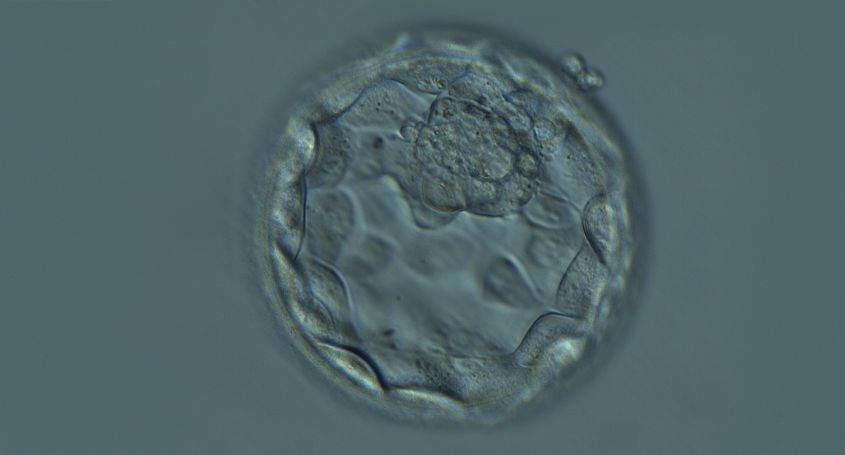There are four types of blood groups: A, B, 0 and AB depending on the characteristics present in the membrane of the red blood cells. Persons of group A have blood cells with the A marker, those of group B have the B marker, those of group AB have both markers and those of group 0 have neither marker.
On the surface of the red blood cells we also find the Rhesus factor (Rh). If the blood contains this protein, the person is Rh positive. If it does not, the person is Rh negative. Rh+ is the most common blood factor in the population.
What blood type will my baby have?
Both blood groups and Rh factor are inherited in a Mendelian pattern, that is, they depend on a single gene. The baby will inherit a combination of its parents' genes.
Incompatibilidad Rh en el embarazo
In general, it does not matter which blood type the baby inherits except in one exception, if the mother is Rh- and the father is Rh+. In this case, it may happen that during pregnancy and more commonly at birth, the baby's blood comes into contact with the mother's. In doing so, the mother's body reacts by creating antibodies against the Rh factor. In doing so, the mother's body reacts by creating antibodies against the Rh factor. The antibodies in the mother's blood can attack the fetus' red blood cells and destroy them, causing an anemia known as hemolytic disease of the newborn or erythroblastosis fetalis.
Since it takes time to create antibodies, during the first pregnancy the baby will probably not be affected since contact between maternal and fetal blood usually occurs during delivery. However, subsequent pregnancies may be at risk, if the fetus becomes Rh positive again. It could also happen that the mother's sensitization to Rh occurred during a miscarriage in the first weeks, mistaken for a delay. In this case, already in the first pregnancy the mother will be Rh-sensitized, i.e. she will have Rh antibodies and will have to be followed up.
How can we treat Rh incompatibility in pregnancy?
In the first pregnancy analysis we will be asked for the blood group. If it is Rh-, it will be determined if there is Rh sensitization, that is, if there are Rh antibodies present in the blood. If the mother is not Rh-sensitized, she can be given Rh immunoglobulin injections to prevent sensitization and prevent the mother from generating antibodies. The injections work for a short time, so treatment must be repeated with each pregnancy.
If the mother is already sensitized, the injections will not work. In this case, the fetus will be monitored frequently because it is a high-risk pregnancy. The treatment of the baby will be determined mainly according to the severity of the anemia. If it is mild, it will only be monitored during pregnancy and at birth. If the anemia worsens, delivery may be brought forward, or even a perinatal transfusion may be required.
In the past, Rh incompatibility could be mortal. Today, thanks to testing and follow-up, babies born with this hemolytic anemia are in the vast majority of cases born without major complications.















